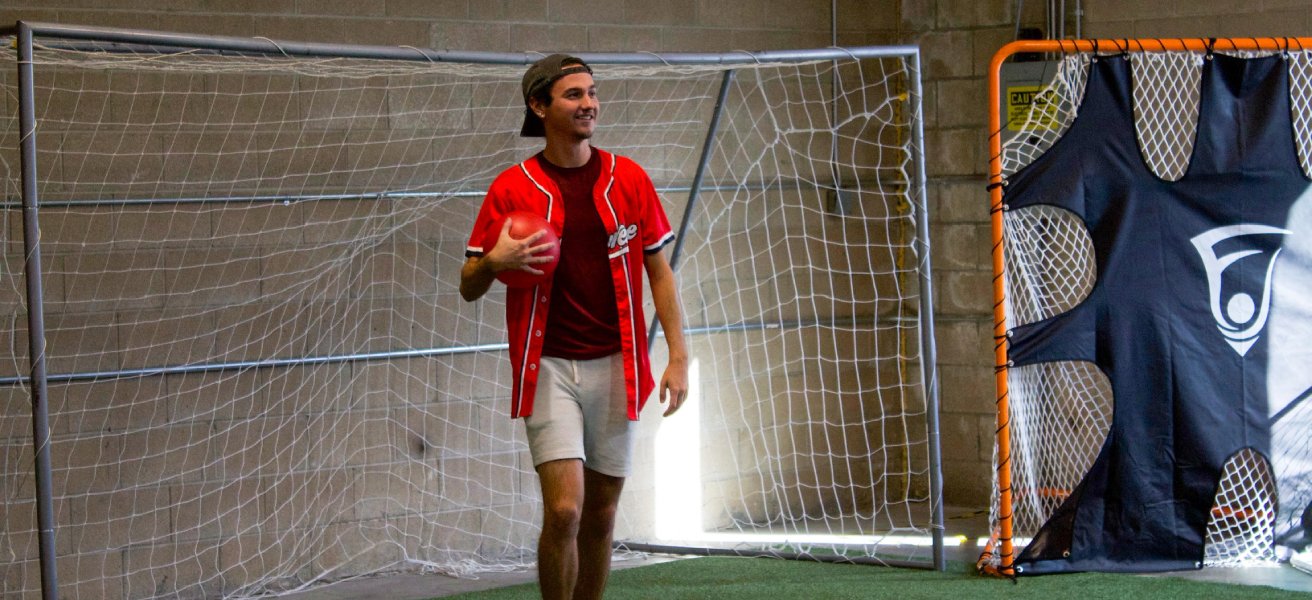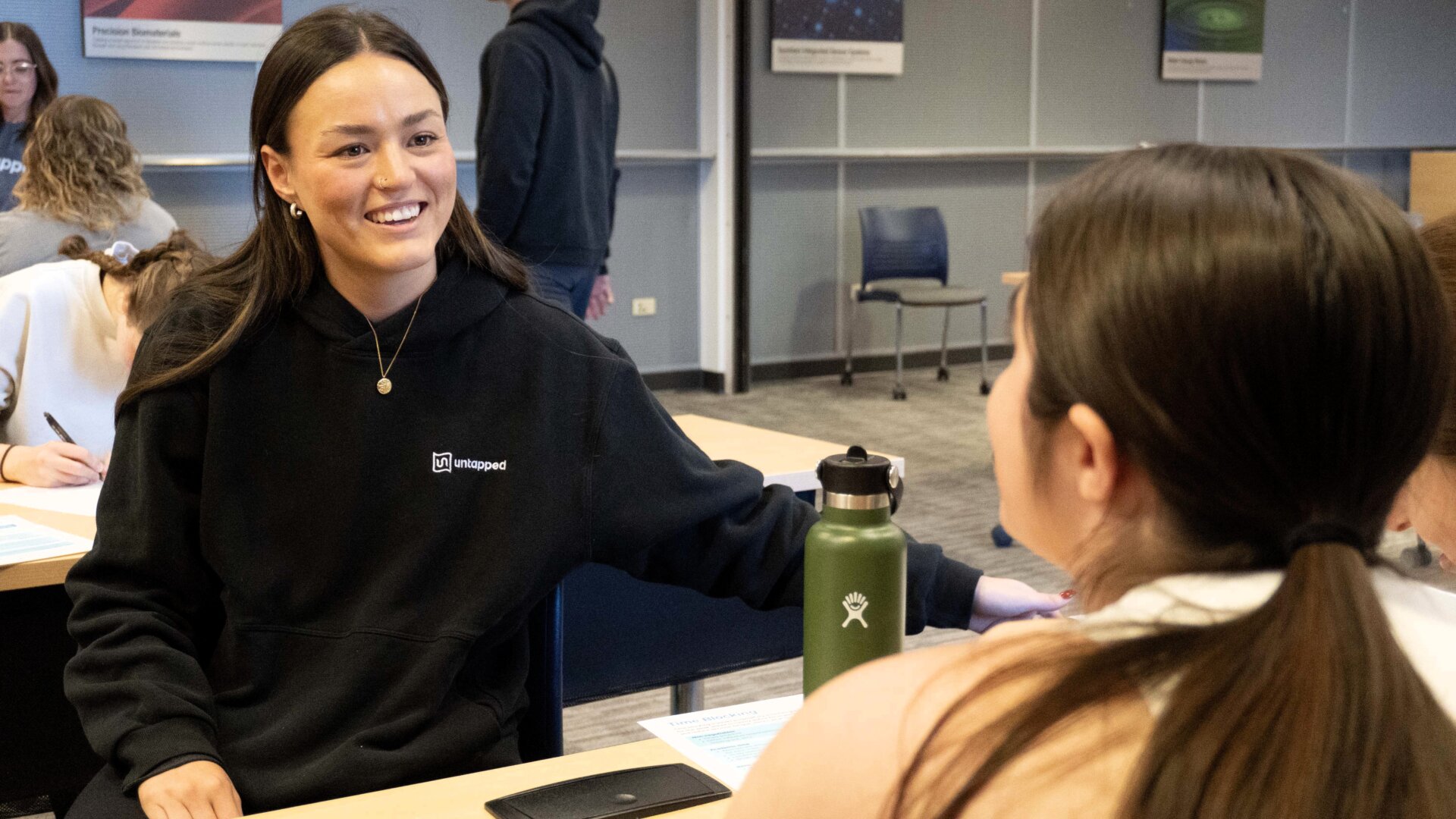My teen is nearly failing two classes, and they’re on the brink of athletic ineligibility. Do I take them out of their sport for a minute so they have time to catch up on missing assignments and complete their current homework?
At Untapped, parents ask us all the time if they should be limiting their adolescent’s participation in extracurricular activities when they’re struggling to keep grades up.

Our answer:
don’t pull them out.
“Focusing solely on academics will improve their performance” is a completely logical thought process many parents have it when comes to their students facing low grades. But, as logical as it may seem, extracurricular activities can actively benefit your child in many ways, like providing them with valuable skills and a sense of purpose. While it may seem counterintuitive to “distract” your student from their academics, a combination of movement and structure is vital for students to succeed—especially those who struggle with their executive function skills.
“An Untapped student was graduating high school and getting excited to play his D3 sport in college; we couldn’t have been prouder. This student had played fall, winter, and spring sports for most of his high school career. His days were structured and predictable, and once he got into a routine, he was set and very successful, both academically and athletically. Were you nervous about the increased pressure that comes with collegiate-level sports? Not at all. We were worried about the off-season.
During the soccer season, this student’s time management was on point. He was up early most mornings for conditioning, he had time to do homework between that workout and his first classes, he’d spend most of the day on campus and in class, then he’d have a little break before practice where he’d try and knock out the rest of his homework. He didn’t have a lot of time to do homework after practice, and besides—that was time he wanted to be spending with his friends. His schedule was laid out for him, and he got in the habit of getting homework out of the way somewhat early in the day.”
Movement and Structure = Good for the Brain
Did you know that movement and structure are crucial to your child’s learning abilities? Physical activity increases blood flow and oxygen to the brain, improving memory and and the ability to learn (and retain) information. The part of the brain that processes movement is the same part of the brain that processes learning. So, when you activate your body through exercise, you kickstart your brain! This can have a direct connection to success in school. Students who engage in daily physical activity show better classroom performance and have a more positive attitude toward school than those who do don’t.
Your child can incorporate movement into their routine by engaging in many types of extracurricular activities and movement methods. We’re not limited to sports; even mild exercise for a few minutes can make a difference. Extracurriculars also provide structure, helping students with executive function challenges to stay on task and regulate their behavior. The structure and discipline extracurriculars provide help students practice those skills daily or weekly. Even if they’re not the ones dictating the structure, the organization and the accountability extracurriculars provide help students to begin developing those skills on their own. These activities foster incredibly valuable life skills that can positively impact your child’s performance in the classroom as well.
Extracurriculars Can Improve the Academic Experience
Back to our D3 athlete: The season went super well. However, second semester was the off season, and it hit hard. The players still had workouts, but they were usually in the late afternoon or the evening, and some of them were optional. Our soccer player hadn’t had this amount of “free” time before. First semester, he wasn’t missing classes—he was already awake and had already worked out even before his 8ams. But second semester, the majority of his schedule wasn’t as concretely structured, and he didn’t have the early morning accountability he’d encountered in the fall. He started sleeping through his early classes, and he rarely started homework before 8pm. He’d never been in a position where he had to manage his time independently, and it was a rude awakening.
Research shows a strong correlation between participation in extracurricular activities and academic success. Students who engage in after-school clubs or sports tend to have higher GPAs, SAT and ACT scores, and an increased chance of graduating high school. However, the benefits extend long beyond grades and test scores; extracurriculars build interpersonal skills and promote positive relationships with peers and adults. The beauty of this is that it doesn’t matter what extracurricular it is, as long as they are involved. Whether it’s athletics, band, theater, visual arts, volunteering, etc., these activities contribute to your child’s personal growth and academic achievements. Also, if your student is thinking about college, admissions to any school are not purely based on academics—extracurriculars play a role in that decision. Colleges are looking for multidimensional kids, and extracurricular involvement is an important part of any application.
Extracurriculars Provide Purpose and Reason for School
We have to recognize that for many students, the highlight of their day lies outside the classroom. While this may seem like an interference in some capacity, participation in extracurricular activities can actually give your child an increased sense of purpose and belonging. They become more motivated in the classroom by developing friendships, increasing their regard for school, and strengthening their engagement across the board. Extracurriculars foster communication, leadership, and responsibility. Not only can this greatly contribute to the development of discipline and accountability in your child, but it can also help them gain confidence in their skills and find their worth beyond academic performance.
After a pretty rough spring semester, our athlete realized his scholarship and place on the team were threatened by poor academic performance. He re-enrolled with Untapped, and we built the structure he was lacking into the following summer. During the next soccer season, he was a part-time student at Untapped, but he and his mentor began to develop some realistic routines that translated to the off season. He crushed his sophomore spring semester with a rigorous off season workout regimen, consistent participation in Habitat for Humanity builds over weekends, and best of all: time built into his evenings to spend guilt-free time with friends.
Parenting a child who struggles with executive function can be overwhelming, but you don’t have to navigate this journey alone. Let Untapped help!
For More:
Don’t Blame Extracurricular Activities for Bad Grades
Extracurricular Activities and Student Motivation
Extracurricular Activities: The Path to Academic Success
Participation in Extracurricular Activities and Academic Achievement: A Comprehensive Review
The Revolutionary New Science Of Exercise And The Brain





